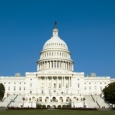Kefauver-Harris Amendment of 1962
The 1962 Kefauver-Harris Amendment origins lie in Senate Anti-Trust and Monopoly Subcommittee Chairman Estes Kefauver’s (D-TN) hearings into the drug industry. The hearings revealed staggeringly high profits and a shockingly low level of accountability. The Kefauver hearings depicted an industry out of control: where the costs of medicine were far higher than expenses warranted, where many pharmaceutical ads were blatantly misleading or overstated, research was less than rigorously carried out, and cheaper generic drugs were hard to access. The Keafauver-Harris bill leveled controls on the pharmaceutical companies, forcing them to tell doctors about the side-effects of their products, requiring companies to notify the FDA before product testing on humans, requiring that drug companies prove their drugs worked as claimed (while removing those that didn’t from the market), and forcing companies let their patents run out after a certain number of years, thus allowing their products to be sold cheaply as generic drugs. In short, the law expanded the FDA’s authority to regulate drugs for both safety and efficiency.
Commentary
Cry Wolf Quotes
The proposal is…apparently directed against an uncooperative small minority, yet, these are the exactly the businesses that would be least likely to maintain adequate or accurate records. Thus, the privacy of the great majority of respectable businessmen is to be prejudicially invaded because of the misbehavior of a small minority….It cannot be too strongly stated that inspection of these factories as provided by this section , by outsiders, can expose to the world trade secrets….This technology is, in the truest sense, the property of its owners.
If overcautious and restrictive Government regulation had blocked [penicillin] testing and introduction twenty years ago, some lives would have been saved while a multitude of lives would have been lost.
An unfettered exercise of power is certainly beneficial to no one, and governmental departments are no exception to this rule.
I feel that additional legislation…is only helpful to large industry and has a tendency to throttle small industry...
Backgrounders & Briefs
Good Rules: Ten Stories Of Successful Regulation
Demos looks at ten laws and rules that we take for granted.


